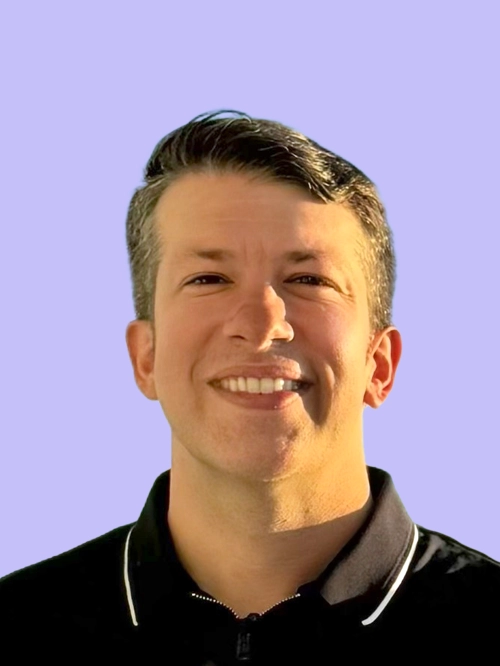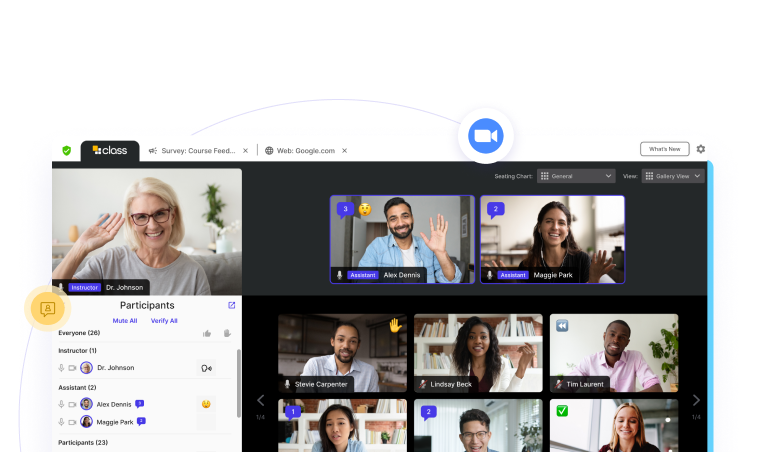
Mike Lovell is the SVP of Marketing at Class. He has dedicated his career to technology and the applications that can innovate the way people live and learn.

Mike Lovell is the SVP of Marketing at Class. He has dedicated his career to technology and the applications that can innovate the way people live and learn.

Oftentimes, in the context of innovation and education, we focus on how pre-existing technologies can disrupt the current models and methodologies of teaching and learning. The introduction of computers, the proliferation of the internet, and the present growth of AI are all examples of this. However, we often overlook the importance of creating a structure and nursery for innovative concepts in the industry.
Recently, we brought together a panel of experts to discuss the impact of innovative leadership within higher education, as well as how it can help mold the future of the industry. The concept of formally convening roles around academic innovation is relatively new and is often conflated with solely technology-related endeavors. Anne Keehn, CEO and Founder of Quantum Thinking, as well as moderator for our panel, addresses this reality, as well as the notable upside of investing in this space:
“I think the institutions that actually had centers for academic innovation or really strong centers for teaching learning certainly fared better [in the COVID-19 pandemic], whether you were supporting on-campus [transition] or [starting] completely online…I think the data shows that so many, out of the pandemic, a lot of resources and funding and new positions and new centers have been [developed] and units have been created to support this.”
The increased popularity of inviting innovation into higher education as seen a number of iterations in recent years, from MOOCs to virtual academies and more. Whereas early iterations of these setups centered around Online Program Management (OPM) models where third-party vendors handled all the infrastructure and planning in exchange for a cut of profits, more institutions are investing in campus-inspired technologies and concepts to address shifting needs and desires of both students and educators. This shift has handed more autonomy back to colleges and universities.
Adam Croom, Senior Vice President of Academic Innovation for OU Education Services, has seen this shift firsthand, explaining, “For the last seven years, our institution has been in an OPM partnership where marketing, recruitment, and student success was operationally done by the OPM, and then design and development and coursework was done with our faculty and obviously my team. And about a year ago, we came out of that, of rev share agreement into a fee for service model. I think that opened up the opportunity for us to think about, ‘What is the next step for this institution?’”
Dr. Cait Hayward, Director of Research and Analytics at the University of Michigan’s Center for Academic Innovation, points out how that approach allows for more intimate awareness of institution-specific needs, adding, “What is crucial is the mindset that we be willing to step back, understand the challenges that our campuses are facing, and be willing to take those on and engage with it through research, through having really skilled expertise in things like learning experience design, media design, software development. It isn't always tech, but we're comfortable with tech. I think it's those components that make up what we do.”
While seeing the value in innovative leadership is an important first step, it’s also crucial to foster a healthy foundation through which this exploration can exist. This means ensuring that an institution not only encourages innovative thinking and problem solving, but also provides the necessary resources to take action on findings and ideas. Dr. Edward Maloney, Executive Director of the Center for New Designs in Learning and Scholarship at Georgetown University, articulates this very point, explaining, “You can't implement structural change without the resources to imagine change happening in practice. And you can't change practice without starting to think about the structures…It's a push-pull at times, a productive tension.”
Dr. Melissa Vito, Vice Provost of Academic Innovation at the University of Texas–San Antonio, has seen the value of this multi-dimensional approach firsthand, adding, “Widening the view of the world, filling out where we have holes and developing a common mindset [is important]. We have some really transactional goals we need to meet: to grow online, to deliver courses, that type of work. But, we've built a mindset around ‘What are we all trying to do?’ We are modality agnostic, but we're driven by our goals. If we can figure out the impact of our work, we're going to build on what we're doing and develop more buy-in and support. We've grown our reach from about 25% of our faculty to this, past year, over 60% of our individual faculty had very specific touchpoints with the work we're doing.”
The internal and external shifts impacting higher education over the near future are notable. Dr. Maloney points out, “I think that survival will be challenging. Then you can add all of the other challenges that higher ed is facing, whether it's the demographic cliff, we think about the value proposition, we certainly understand the larger social questions that are at play in higher ed. All of those things, I think, are ones that centers like ours have a role in trying to help shepherd the university through.”
With this in mind, institutions looking to identify successful paths forward must consider their commitment, both in conception and resources, to innovation. As Dr. Vito adds, “The growth of the impact of technology on teaching and learning is simply immense…I would say, look to academic innovation areas, look for teaching, learning, digital learning, digital transformation, student success.”
Interested in exploring how your institution can foster a foundation for academic innovation and growth? Reach out to a Class team member today, and discover how a partnership committed to addressing the current and future challenges unique to your institution faces can lead to innovative solutions.

Mike Lovell is the SVP of Marketing at Class. He has dedicated his career to technology and the applications that can innovate the way people live and learn.

Mike Lovell is the SVP of Marketing at Class. He has dedicated his career to technology and the applications that can innovate the way people live and learn.
Get our insights, tips, and best practices delivered to your inbox

Sign up for a product demo today to learn how Class’s virtual classroom powers digital transformation at your organization.

Features
Products
Integrations